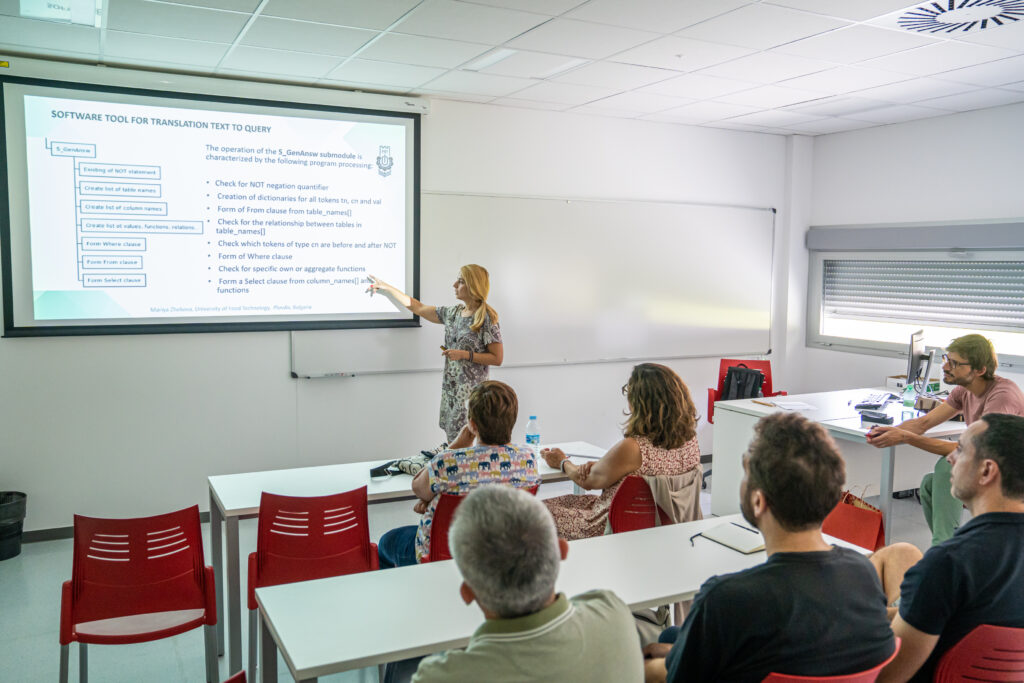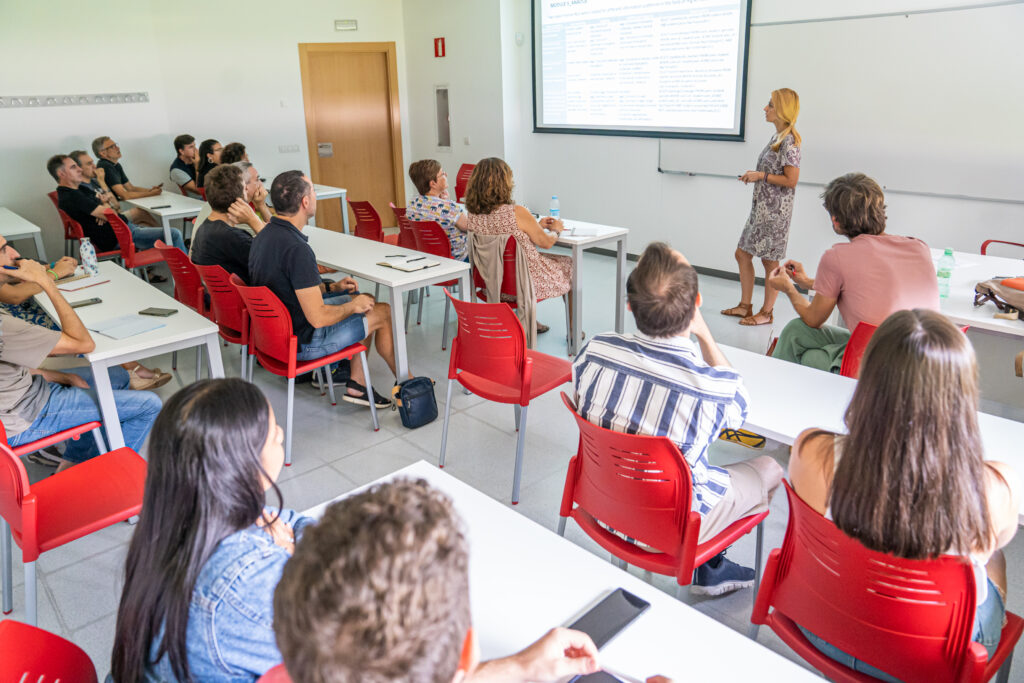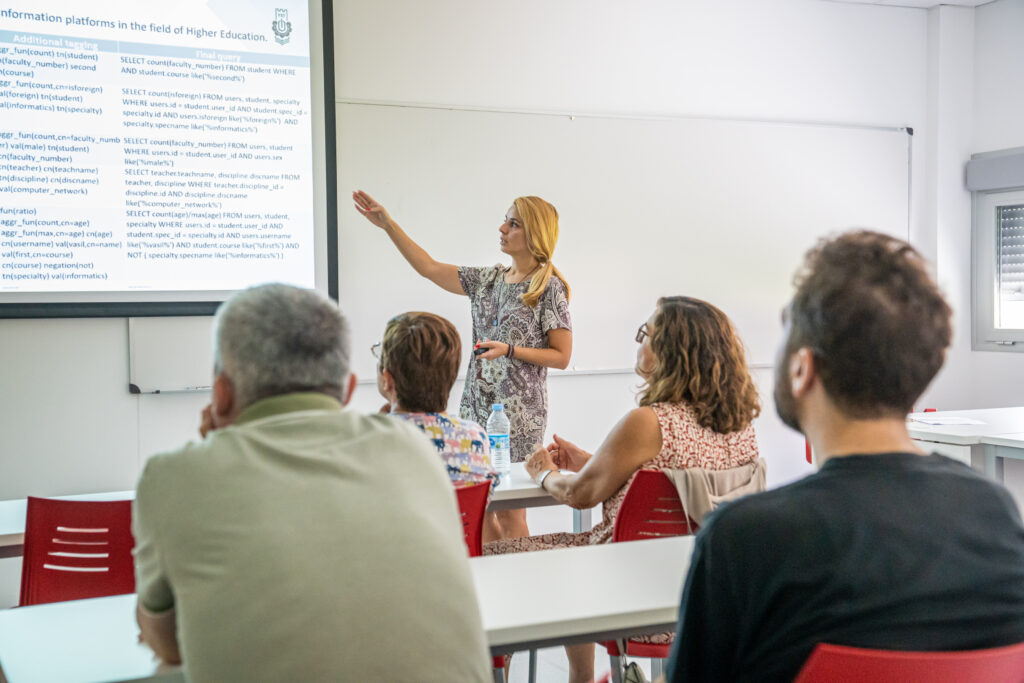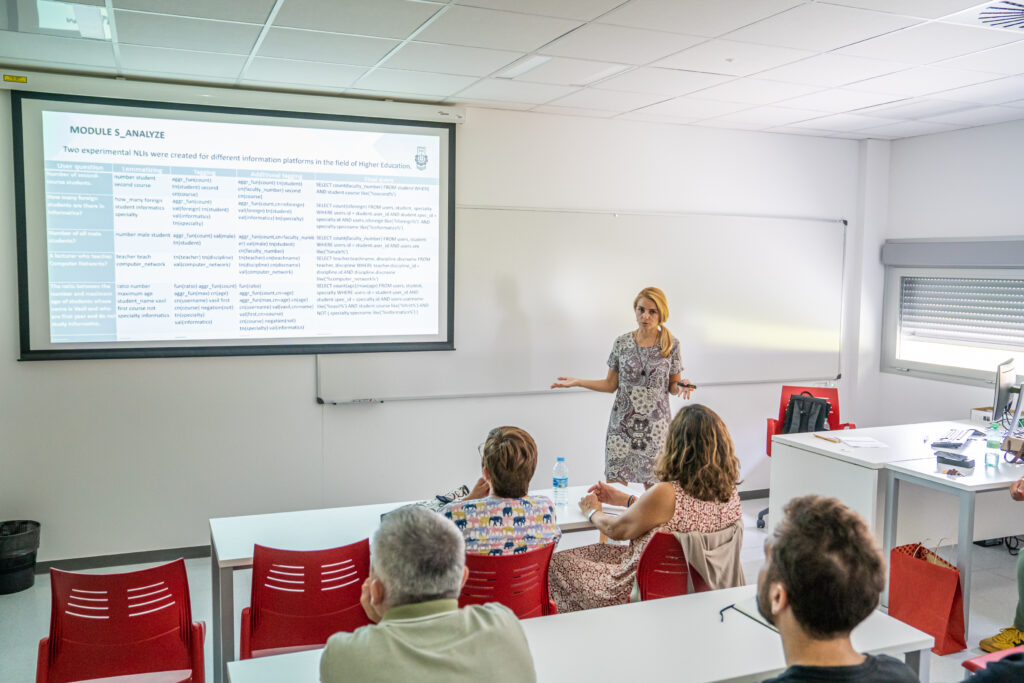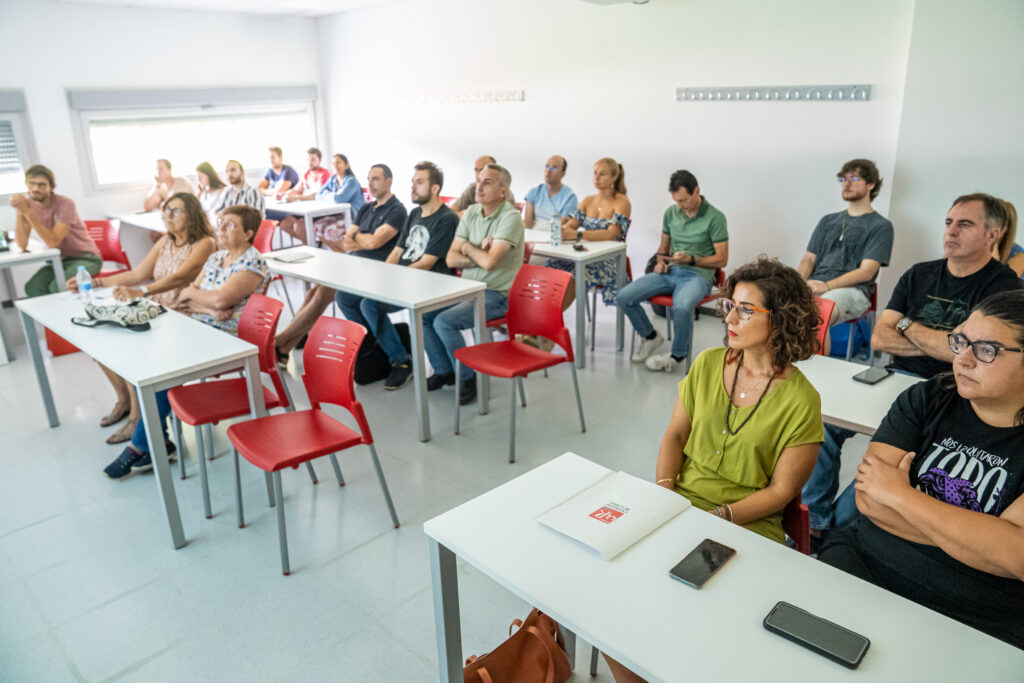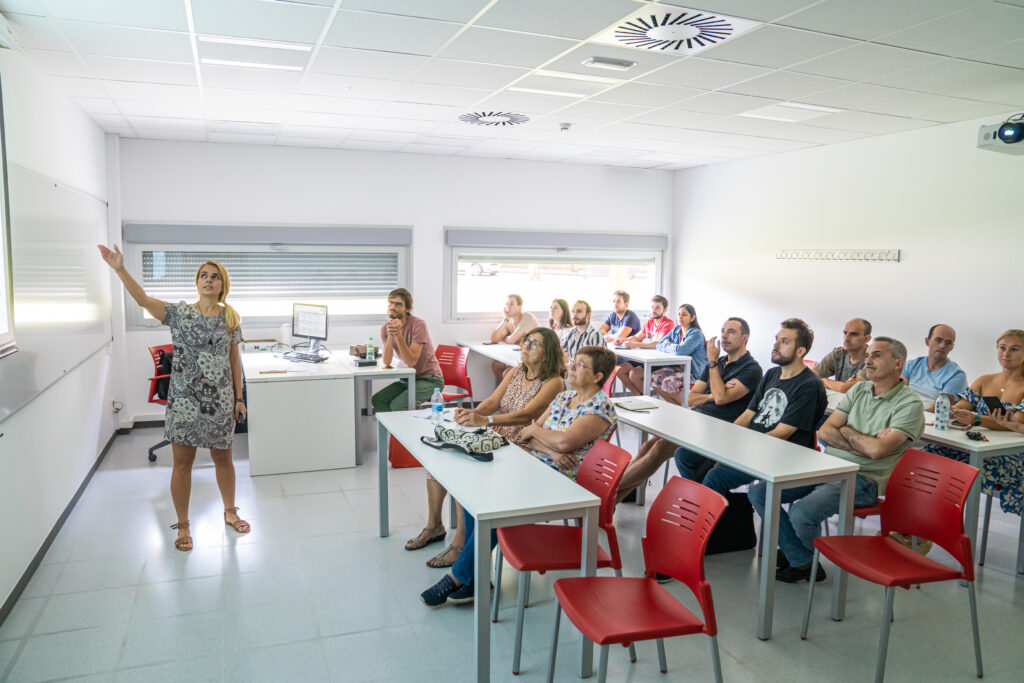Ponente: Gadea Mata Martínez (Grupo PSYCOTRIP, Universidad de La Rioja).
Lugar: Seminario Mirian Andrés (Edificio CCT).
Hora: miércoles 13 de septiembre de 2023, 12:00.
Resumen: la asignación de niveles de competencia a escritos producidos por aprendices de una lengua es una tarea altamente subjetiva. Es por esto que el desarrollo de métodos que evalúen escritos de manera automática puede ayudar tanto al profesorado como al alumnado. En este trabajo, hemos explorado dos vías mediante el uso del corpus CAES. Dicho corpus está formado por escritos de aprendices de español y etiquetado con niveles CEFR (hasta el C1). La primera aproximación es un modelo de aprendizaje profundo llamado Deep-ELE que asigna niveles de competencia a las frases. La segunda aproximación llevada a cabo ha consistido en estudiar la perplejidad de las frases de los estudiantes de distintos niveles, para luego clasificarlos en niveles. Ambas aproximaciones han sido evaluadas, y se ha comprobado que pueden usarse de manera exitosa para clasificar frases por niveles. En concreto, el modelo Deep-ELE obtiene una accuracy de 81,3% y un QWK de 0,83. Como conclusión, este trabajo es un paso para entender cómo las herramientas del procesado de lenguaje natural pueden ayudar a las personas que aprenden un segundo idioma.
Nota: la charla se trata de una prueba de tiempo de la ponencia que presentará Gadea en el XXXIX Congreso Internacional de la Sociedad Española para el Procesamiento del Lenguaje Natural (Jaén, 27-29 de septiembre de 2023, http://sepln2023.sepln.org/).
